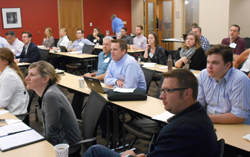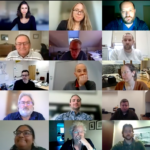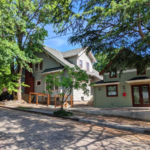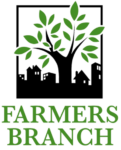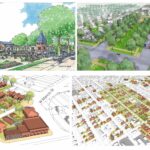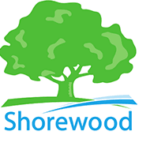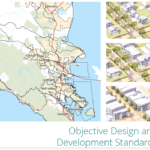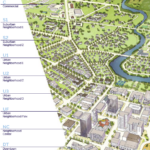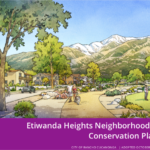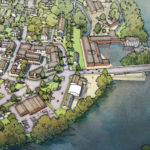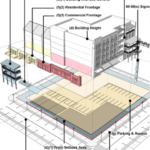FBCI Expands its Reach and Effectiveness
Over the past year, FBCI has begun its campaign to make form-based codes the “new normal” in municipal land use regulation nationwide. Less than 1% of cities, towns, and counties have such codes on their books, and frustrations mount over the continued use of overcomplicated, dysfunctional, and ultimately unsatisfying conventional zoning codes. Attempts at reform too often just tweak existing codes that are conceptually incoherent. The tweaks typically do not solve problems and often create new ones. Our goal is to reach a tipping point of 40 -50% where form-based codes and similar approaches that promote walkability and good urban form become the predominant model and gradually replace conventional Euclidean codes that are not working. Here’s how we’re doing it.
Education and Training
Education is FBCI’s biggest initiative and it takes many forms. We have given professional development courses over the past year in cities all over the US, including White Plains and Plainview, New York, Lansing, Michigan, Salt Lake City, Utah, Edmonds, Washington, Fullerton, California, Savannah, Georgia, and Springfield, Massachusetts. These have included our one-day introductory course (FBC 101) and our two advanced two-day courses (FBC 201 on Placemaking and FBC 301 on adoption and administration). In a ground-breaking effort to make our introductory course more accessible and up-to-date, we partnered with the Planetizen website to provide an 8-hour online course given by our top-notch instructors, that is available for as little as $16.95 (see accompanying article for details). We will be offering our one-day on-site version of the 101 course in Chicago on October 16 and our two-day advanced course on adoption and administration November 5 and 6 in White Plains, NY. See our courses for details.
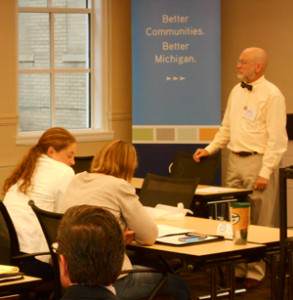
Geoff Ferrell, board member and veteran instructor for FBCI, with participants of at our class in Lansing
Theses types of courses have been our bread-and-butter offerings for the ten years FBCI has been in existence. But we know that it is not good enough just to teach planning professionals – we have to reach the broader constituency of public officials, developers, and citizens. We are doing this by working with other organizations, including Smart Growth America, Congress for the New Urbanism, American Association for Retired Persons, Transect Codes Council, developers and environmental organizations, Urban Land Institute, American Planning Association, and state-level planning departments. Our long-standing partnership with the Michigan State Housing Development Authority has trained dozens of planning officials in the state of Michigan. We also conducted training sessions for staff at the New York State Department of State and also for the City of New Rochelle, NY City Council and municipal departments. We have been speaking at conferences and meetings, ranging from a public information session for the Town of Belchertown, Massachusetts to the national conference of the American Planning Association (APA) in Seattle. We have also spoken at the Northeast Regional APA conference in Saratoga Springs, NY, and convened a panel of coding thought leaders at CNU in Dallas. We presented at a conference in Rochester, NY on converting highways to boulevards to ensure that when a highway is removed, a coherent urban fabric that reknits the city replaces the scar left by the highway. We welcome opportunities to provide training to municipalities and professional and citizen groups around the country.
We are extending our reach into the classroom, providing a training workshop for students at the Conway School of Landscape Design in Conway, Massachusetts. Our Board and faculty also teach in university programs such as California Institute of Technology, University of Oregon, and UCLA.
Enlarging the Conversation
But it is not enough to preach to the choir. We need to engage people in all walks of life to consider how land development around them affects their quality of life and to strive for more walkable, healthy, safe, and beautiful communities. To that end, we have convened panels of national zoning experts at national conferences of the American Planning Association and the Congress for the New Urbanism to find common ground among different coding approaches. In these panels we have explored how to reach those who have no particular reason to be interested in technical aspects of planning and zoning but who want better cities.
We are also working with increasingly receptive public health professionals who have come to realize the importance of building and maintaining walkable places that are livable and lovable. An interview published in an online publication of AARP highlighted the advantages of form-based codes for people who want to “age in place.”
In order to bring down the cost of form-based coding and enlarge its reach, we are planning a multi-disciplinary gathering of practitioners in Detroit this spring to come up with an easy-to-use toolbox for instituting form-based planning and coding in places that have thought they could not afford such tools. Improved land development does not have to be expensive; done efficiently, it can be less costly than the cumbersome and unpredictable existing system of land use regulation that spawns community conflict, litigation, and just plain bad places. We want to reach more people in more places and light the fires of change.
We see an emerging consensus among both laypeople and professionals that walkable communities are the future and that planning and regulating land development by principles of form and placemaking is the way to get there. While there may be different opinions on the technical details of how to do this, a broad consensus is taking shape that this is the way to go. And FBCI has been in the forefront of this movement, along with allied organizations such as the Congress for the New Urbanism.
Where We’re Headed
Once people understand the advantages of making great places rather than just “following the zoning code,” we think that our approach will succeed by virtue of its appeal to all concerned. We look forward to the day when placemaking and coding for great urban places becomes the “new normal.”

